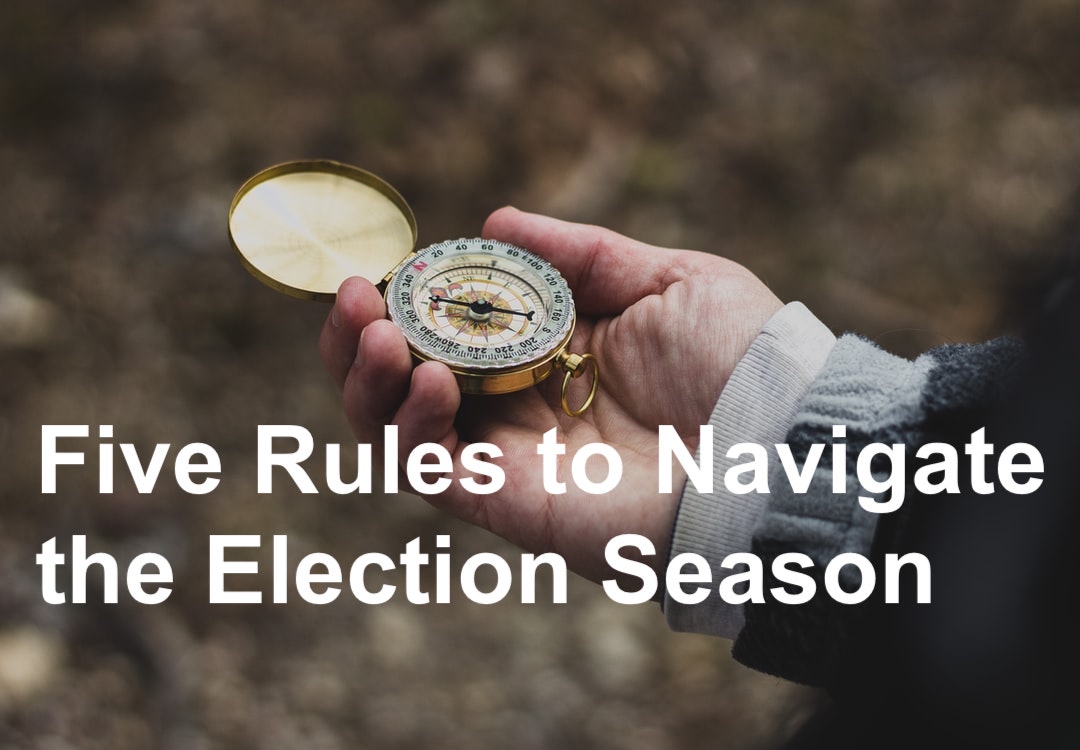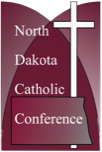
Five Rules to Navigate the Election Season
By Christopher Dodson
Executive Director
North Dakota Catholic Conference
August 2020
Another election season is upon us. There exist five “rules” or facts that we should keep in mind between now and the election.
Rule One: The Catholic Church does not support or oppose political candidates or political parties.
Remember that, share it with your friends, affix it to your refrigerator, email it to yourself.
Between now and the election we will hear and read claims that the Catholic Church supports or opposes a candidate or party. In fact, it is against federal law for the Church to take a position on a candidate or political party. The Church is not interested in partisan politics. Instead, the Church seeks to bring attention and clarity to the moral and human dimensions of the issues.
The dioceses of North Dakota go further than the law by directing that materials that mention specific candidates or political parties in any manner may not be distributed at or by any parish or diocesan entity, even if the materials do not explicitly support or oppose a candidate.
Rule Two: Talking about issues is not the same as endorsing or opposing a candidate or party.
The Church, including its leaders, have an obligation to talk about the issues. Pope Benedict XVI wrote: “The Church cannot and must not take upon herself the political battle to bring about the most just society possible. She cannot and must not replace the State. Yet at the same time she cannot and must not remain on the sidelines in the fight for justice.” (Deus Caritas Est, no. 28)
In our candidate and party-centric world, merely speaking on issues is perceived as code for talking about candidates and parties. In truth, this is backwards. The Church’s social doctrine stems from transcendent and universal truths. It was there before any candidate or party took a position on the issues. If a candidate or party falls on the wrong side of Catholic doctrine, that is of their doing, not the Church’s. The Church will not and cannot change just because politicians want her to follow their lead.
Rule Three: Don’t believe everything you hear.
Every election cycle we hear about priests or deacons who supported or opposed a candidate or party in his homily. Investigation usually shows that the claim is not true. Usually the priest actually talked only about issues.
Social media poses difficult problems. Already posts are circulating stating that Catholics must vote in a particular way. Some of those posts come from organizations claiming to be "Catholic." In truth, those posts are not officially Catholic. Remember, Catholic organizations cannot legally oppose or support a candidate or party. (See Rule One.)
Rule Four: People make mistakes.
Admittedly, priests, deacons, or Catholic representatives have on rare occasions said something they should not have said about candidates or parties. If you think this has happened, make sure you have all the information and contact the diocese. In charity, remember that the statement does not represent the position of the Church.
Rule Five: In the United States we vote for individuals, not parties.
Unlike most western nations, the United States is not a parliamentary system. In those countries, people vote for a “government” represented by a party. The party has a platform which it will implement while in government. The parties rarely allow elected officials to stray from the party program.
In the United States, including the individual states, we vote for individuals who happen to belong to a party or maybe no party at all.
Proofs of this political practice abound. Not all Republicans are pro-life and not all Democrats are pro-abortion rights. Not every Democrat supports greater restrictions on guns and not every Republican opposes limiting gun ownership. Republicans in some states are very pro-school choice while in other states, like North Dakota, Republicans have been resistant to the idea. Within the North Dakota House of Representatives, Republicans can be divided into three or more distinct voting groups.
Nevertheless, when it comes time to vote, we lump all Democrats into one group and all Republicans into another group. Worse, we assume that all of them believe everything that was thrown into a party platform statement adopted long before or we assume that every candidate agree’s with their party’s presidential nominee.
This has consequences for how we vote as Catholics. For one thing, it is not informed voting. Find out where the candidate really stands and do not make assumptions. Between now and the election the North Dakota Catholic Conference will provide questions for you to ask the candidates. Make use of them. Second, drawing assumptions about candidates based on parties plays into a tribalism and division that is not good for American politics.
The North Dakota Catholic Conference has developed a website to help Catholics discern their vote. It is called Your Faith, Your Vote. It will be periodically updated between now and the election. You can find it at yourfaithyourvote.org.
What We Do
The North Dakota Catholic Conference acts on behalf of the Roman Catholic bishops of North Dakota to respond to public policy issues of concern to the Catholic Church and to educate Catholics and the general public about Catholic social doctrine.

Contact Us
North Dakota Catholic Conference
103 South Third Street, Suite 10
Bismarck, North Dakota
58501
1-888-419-1237
701-223-2519
Contact Us

